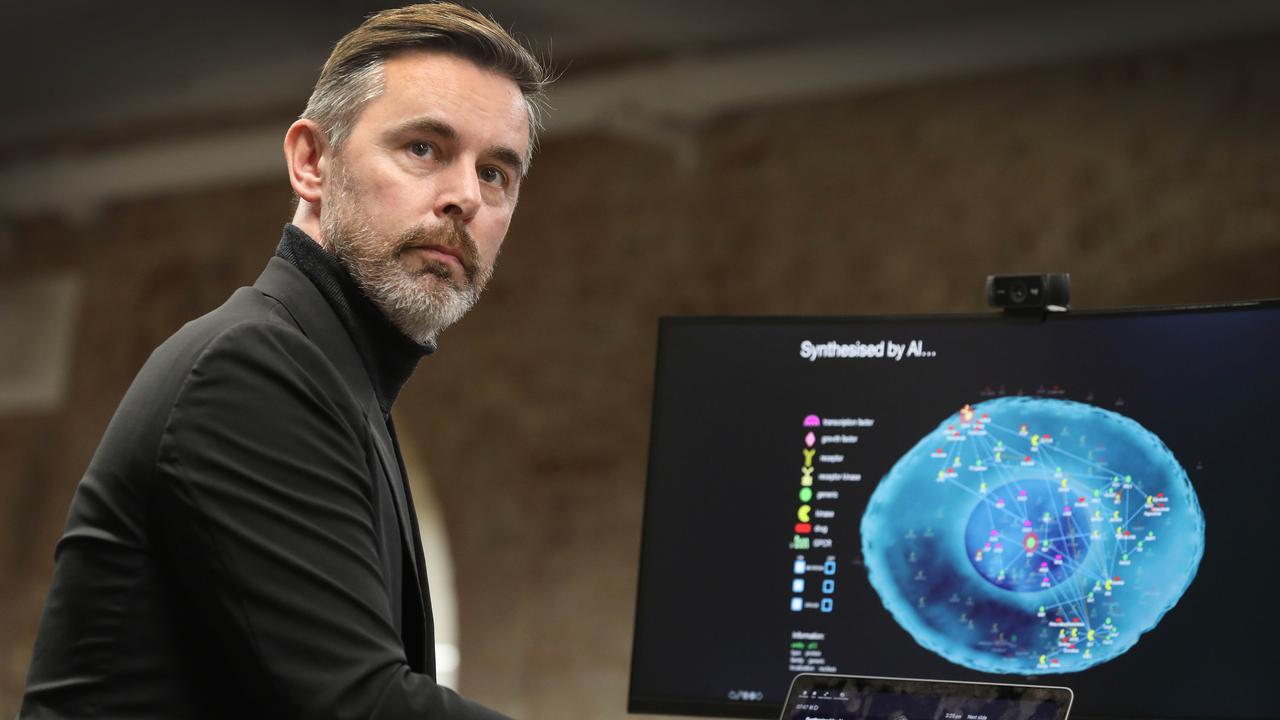Fearless Conversations: SA’s digital health and technology sector in the spotlight in Advertiser/Flinders University conversation series
Experts say digital technologies can cure both patients and our overloaded hospital system. Watch a full replay of the panel discussion on the future of SA’s health network.
Medical experts believe a hi-tech health system can unclog busy hospital emergency departments, ease ambulance ramping and, most importantly, save lives.
In the process, the booming digital health economy will create lucrative skilled jobs in South Australia while improving quality of life for patients.
Insights from the latest Fearless Conversations forum – a 13-week collaboration between The Advertiser and Flinders University covering topics vital to South Australia’s future – delves into health technology and medical devices, revealing varied opportunities as well potential pitfalls.
Digital Health CRC chief executive Terry Sweeney, Flinders University Professor of Digital Health Systems Trish Williams, CareApp founder Allison Nikula and orthopaedic surgeon Matthew Liptak offered a number of insights at the forum on Wednesday.
Dr Sweeney noted health data was doubling every 73 days and artificial intelligence was set to “turbo charge” it even more.
He said there were massive opportunities to use data to improve lives including a leap from “wearable” technology like smart wristbands to “thinkable” technology able to anticipate a person’s health problems.
This is against a backdrop of adverse patient incidents costing more than $4bn a year.
“We can drive costs down … we’re going to save lives,” he noted.
“Virtual emergency departments such as the new one at the Women’s and Children’s Hospital, telehealth consultations and portable health monitoring devices will keep people healthy and cut ED presentations.”

Professor Williams said EDs were clogged with people with chronic conditions and technology could prevent some of those presentations.
“What we need to engage in more is that adoption of technology, so that people can be doing that at home and you will then have less people coming into hospital – people themselves become the point of care … rather than having them come into the hub of where we provide care,” she said.
The forum heard many health tech innovations had direct benefits for the public, such as Dr Liptak’s MAXM Skate system offering clinician-connected physiotherapy guidance at home after surgery, while Ms Nikula’s CareApp connects families, carers and people in care.
Ms Nikula stressed: “We need to keep the client at the centre (of technology) and the people who support them.”
Participants also stressed that clinicians needed to be part of health tech developments for it to work well.
DIGITAL TECH IS THE BEST MEDICINE
Digital technology is the right prescription for solving some of the world’s most pressing health challenges, while also stimulating the economy, creating jobs and attracting global talent to South Australia, a leading digital health expert says.
Former global managing director for IBM Health Dr Terry Sweeney is heading up the $200 million Digital Health CRC innovation centre, based at the MIT Living Lab at Lot Fourteen. The venue also hosts a new commercialisation hub – Digital Hive – which aims to invest in new and emerging technologies and support start-ups.
“In addition to solving problems, there’s a real opportunity to create a digital economy in health – the two things aren’t mutually exclusive,” Dr Sweeney said. “I think it’s important to have two sides of the coin – you can solve a problem like ramping with digital tools but at the same time do it in a way that creates an industry out of digital health.”

The Digital Health CRC will also focus on driving better clinical outcomes, giving patients more agency in treatment options.
“When we think about other industries like retail, you shop online for a new pair of jeans and it’s a fantastic experience,” Dr Sweeney said. “We don’t really have that in healthcare: we are trying to use technology to improve the patient as a consumer, to make it easier and a more pleasurable experience for individuals to interact with the healthcare system.”
Digital health was just one of the topics on the agenda for the third instalment in the Flinders University series Fearless Conversations.
The 13-week campaign, in partnership with The Advertiser, is bringing together leading South Australian voices in roundtable discussions about the big issues facing our state.
It is hoped the campaign will encourage people to share their thoughts, opinions and ideas on key growth areas, and embrace a fearless approach in creating solutions that will drive South Australia forward, both now and into the future.
Streamed live on advertiser.com.au every Wednesday from 10.30am, the series encourages the community to join the debate about our state’s future.
People can submit their own questions to put forward to any of the weekly panels through advertiser.com.au or on Twitter via #fearlessconversations.




